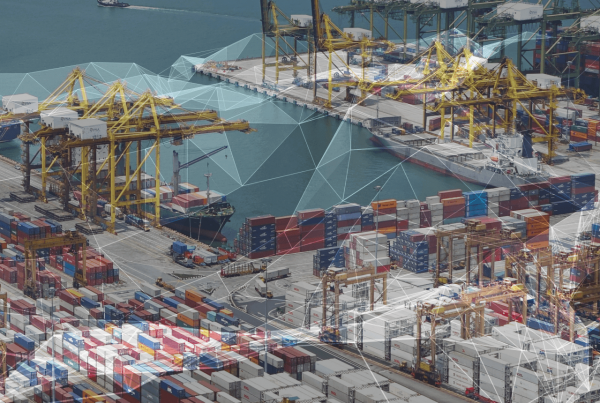There is little to no doubt that digitization is set to revolutionize the logistics industry. However, while most logistics providers don’t need convincing of the need for digital transformation and appreciate the need to keep pace with their competitors and stay ahead of technological innovations, few are succeeding at enabling full digital conversion to include technologies, mindsets, leadership qualities and vision such as:
- The Internet of Things (IoT)
IOT devices get connected to the internet and can send and receive information resulting in a global system of information being accessible to all supply chain players in real time, enabling efficiency and benefitting both logistics providers and the end Consumer. The enablement of tracking in real time, both domestically and internationally, offers increased levels of visibility to logistics providers and their customers.
/Logistics-Digitization-Success-banner.png)
- Digital leaders
Many have yet to realize what the new digital culture entails. A study from Capgemini published in 2017 found that while 40% of leaders believed their organization had a digital culture only 27% of employees held the same view.
- C-suites
Middle-aged digital immigrants often are missing digital skills and knowledge which prevent them from understanding how to drive their company forward to embrace the necessary digital transformation.
/Logistics-Digitization-Success-banner%202.png)
- Company culture
Many obstructions to digitization get deeply rooted in company culture. It is impossible for a company to take full advantage of the technologies and capabilities available in innovations if there is an underlying cultural reluctance to change. Read our blog on this topic to learn more.
What can change to make businesses overcome the above obstacles and become faster and more agile through digitization?
- Embrace new technology
It’s time to empower the decision makers to make innovative digital strategies and collaborate with all players within the business. Utilizing the Millennials’ “digital native” status will enable creative, fresh thinking perspectives necessary to support the overall cultural mindset and allow full digital transformation.
- Invest in training
Skills quickly become obsolete in today’s fast-moving technological revolution, so it’s imperative that training is ongoing to keep up with digital development opportunities.
Capgemini reported in their ‘Digital Talent Gap’ paper that 29% of employees believe their skill set is redundant now or will be in the next 1–2 years. However almost half of the digital talent surveyed described their company’s training programs as “useless and boring,” and 55% said they would move to another organization if their current employer were failing in helping them to continue developing their digital skills.
/Logistics-Digitization-Success-banner%203.png)
- Consider the technology
While it’s true that technology is the driving force in the digitization process, it must be selected and implemented carefully so not to be overly complex but remain beneficial to productivity, technology and provide ‘value-add.’ For example, logistics companies should consider utilizing SaaS supply chain platforms that are easy to use, with an intuitive user interface, that ultimately improve data-driven decision making.
While there may seem to be many challenges to overcome, it is time to take digitization to the next level to streamline your operations and give your customer improved service.




